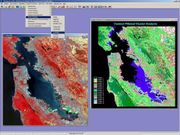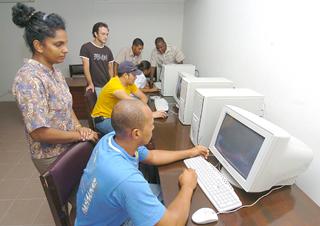
Children in Seychelles’ primary schools are having a unique opportunity to play and learn about some of the latest technologies under a new plan to launch computers in primary schools as a teaching and learning tool.
On the occasion of this year’s national Children’s Day, students of the Port Glaud primary school in the west of Mahe, were the first to receive a well-equipped computer room.
The donation was made by the Seychelles Iceland Development Group as part of a joint project between the group and the ministry of education to provide all primary to post secondary learning institutions with computer laboratories.
Speaking at the donation ceremony, the education minister Danny Faure said, “
Seychelles has now entered a new battle. I hereby declared a national war directed at the elimination of illiteracy in the domain of information and communication technologies(ICT).”
However, critics say the foreign exchange scarcity crippling this Indian Ocean’s tourist heaven is a major set back to the government’s plan to furnish all educational institutions with computer laboratories.
Already plans to set up a second computer class in all secondary schools have been put on hold because of lack of funds. Critics say a way around this hitch, is for the government to enter partnership agreements with various international grouping that could provide the necessary technical support.
The Seychelles Iceland Development Group plans to supply 200 computers that will fully equipped 5 primary schools (out of 23) with a modern computer room by the end of the year.
Despite the odds, minister Faure said “for the past decade or so, the Seychelles education system has been revolutionary and progressive – a clear indication that we are constantly researching and keeping abreast of new developments in education, in order to offer the youths of our country better opportunities so that they can succeed in their studies and prosper later on in life.”

















